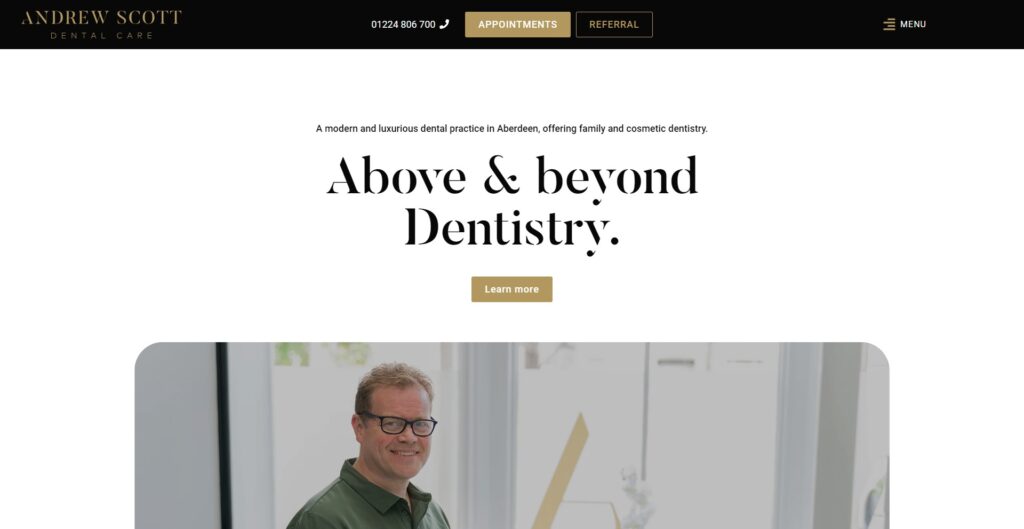By not working we mean; not growing your business, not selling your products, not getting more leads into your business. Understanding why your website isn’t working can be difficult. Time and time again we see people who have a great product or service with the owners working really hard, but their websites aren’t helping their business grow.
To help you, we have compiled the top ten reasons why your website isn’t performing. If this is you, then let us help you find out what you can do to fix it and get your website truly working and making money for you.
The Website Content isn’t really relevant to your target audience
You are in trouble if you are not certain who your target audience is. Saying ‘everyone’ isn’t enough. Trying to be all things for all people will make you relevant to none. Look at your website through the audience’s eyes, then re-write your content so that it is both interesting and relevant to them.
No call to action
It may seem silly but you have to tell your customers what they are supposed to do next. People tend to take the path of least resistance so make it easy for them. You can do this by creating a call to action on every page of your website, guiding your potential customer to the next step. This might be to download an ebook or white paper, to call you, to fill in a form or to purchase your product.
No basic Search Engine Optimisation (SEO) on your website
Really good SEO is a science. There is much to learn and understand but there is some basic SEO that you can do which will help you ensure your site is correctly indexed by Google. Ensure each page has its own URL with a relevant keyword and then check the content of each page has approximately 3-7% keyword density of the same keyword throughout.
Not updating content
The Google algorithm is constantly being updated to provide the most relevant results for the search term entered. Relevancy to the search whilst providing a great user experience (see ‘non-responsive’ further down) are key. If you haven’t updated the content on your site for the last year then you may find that Google won’t favour your website because there isn’t anything new there. Write a new blog post, add a new case study, create a new page or add another testimonial.
Not communicating your unique value proposition
You should know what your UVP is but if you don’t talk about it on your website your UVP can never be the reason people chose you over your competition. Be sure to put it prominently on your website and even consider having it be the first thing people see when they land on your website.
Not creating landing pages
A common misconception is that Google ranks websites but that’s not quite the case. Google ranks pages not websites so to help with the relevancy issue, you should try to keep each page to one topic only and also apply that strategy to your SEO. The days when you could stuff one page with numerous keywords (often unrelated) and still rank them highly in the search engines are long gone. Not only does it make for a horrible reading experience, you will weaken relevance for that page because you will confuse the search engines. They will scratch their machine learning brains trying to figure out what makes your page relevant at all.
Your site looks ugly
There is no getting away from this one even if you fix the relevancy issue; people who have not been referred to your business need to know if they can trust you. One thing sure to make your business appear unprofessional is an ugly amateurish looking website design. Also filling your pages with too many words is not always a good idea and can often come across as desperate to your potential buyer by trying too hard convince them how good you are. We have a finite amount of time to get attention so use images to create a story or to make your statement and be concise with your words.
Non-responsive website
Over 85% of people now browse the internet on their smartphones or mobile devices. If your website isn’t technically capable of adjusting its design to be optimised for each device then you will be penalised by Google and lose sales because you are making it difficult for people to use your website when they are mobile. A responsive mobile website design will solve this for you.
Difficult to navigate
Our data shows that engagement falls off a cliff when websites visitors can’t find what is important to them quickly. Ensure your most important content is referred to on your homepage and in your website menu.
Old website framework
If your website is over two years old, then it potentially vulnerable. The equivalent of 30,000 business websites are hacked into every single day so make sure that your website software is up to date, together with the theme and any plugins.
And here are a couple of bonuses for you;
1 – Not using Analytics
So many people find Analytics confusing however if you aren’t measuring what the traffic to your site is doing and where it is coming from then you have no way of maximising your return on investment. Request access to your analytics or get a report from your web designer and take the time to read it and understand it.
2 – Not marketing your website
Roughly 80% of all websites are floating around in cyberspace doing nothing whatsoever for anyone. If people are not finding your website then there is little point in having it at all. You need attention and getting the right eyeballs onto your website at exactly the right time requires the right strategy and great execution. If you do not have the skills to take care of this, you can make use of social media channels to send people to pages or products on your website to increase awareness. Alternatively, you could contact MediaGorilla® to help you achieve success with inbound marketing.



